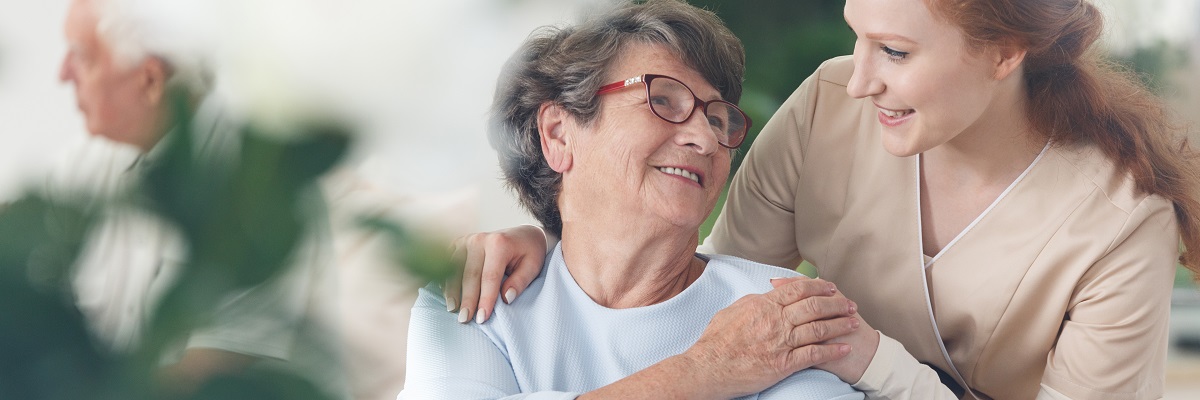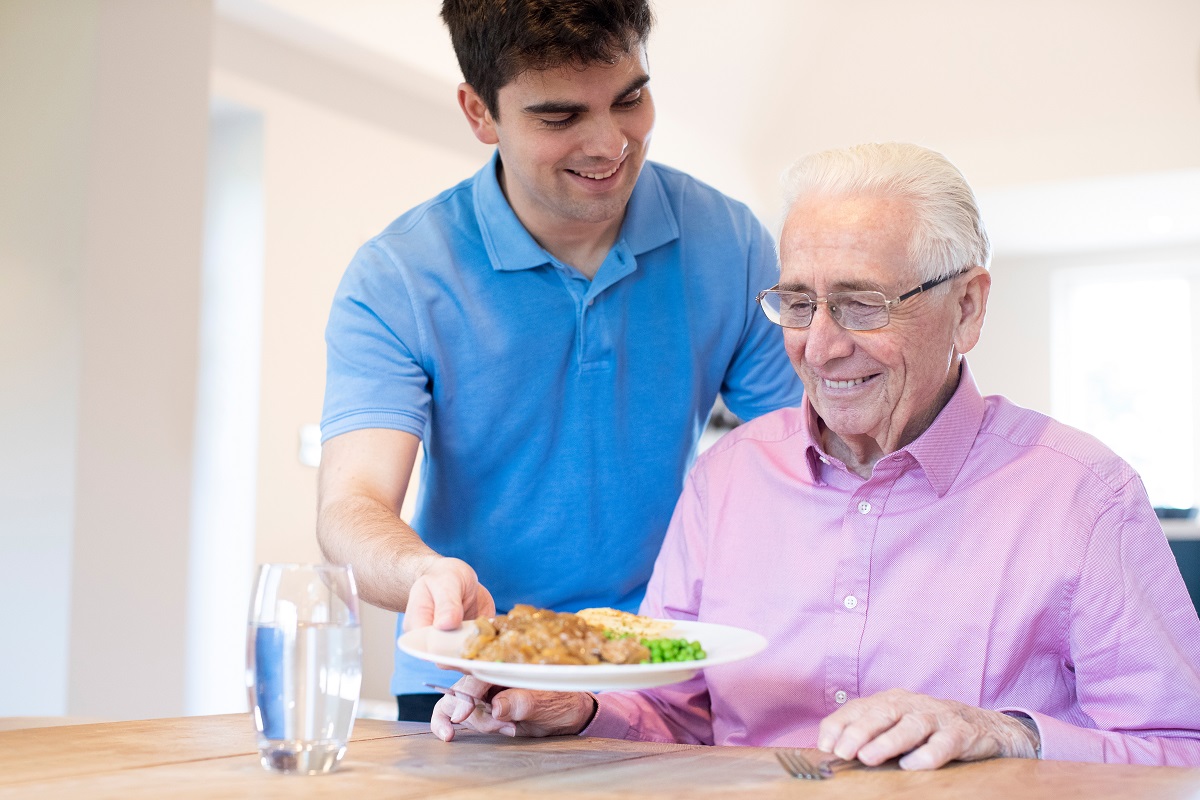When Violet Rogers was diagnosed with dementia, her granddaughter Sophie decided to give up her career and independence to care for her beloved gran. Here Sophie, now 29, shares the highs and lows of the dementia journey and explains why she knows she made the right choice.
How was your gran diagnosed?
I’d just moved to London having got my first job after graduating from university. Then Mum phoned to tell me that, after a series of memory tests, Gran had been diagnosed with vascular dementia. Gran and I have always had a very close bond and I had a horrible sinking feeling, but it was also tinged with relief because at least her increasingly odd behaviour was now explainable.
Looking back, were there any signs before that she was in the early stages of dementia?
Yes but we’d brushed them under the carpet for a long time. She used to have beautiful handwriting and was a superb letter writer, but when she wrote to me in London I noticed she was struggling to join up her letters and had begun writing in block capitals. Each time I came home to visit, I’d see a decline. Her home used to be spotless but it wasn’t anymore and, although she’d never liked throwing anything away, she’d become a serious hoarder. She’d started sleeping on the sofa and obviously wasn’t going upstairs anymore and barricading the front door in case anyone might break in.
What happened after diagnosis?
Quite a lot! I came home to visit Gran a few days after her diagnosis and within two weeks I’d given up my job and moved in with her…on my 23rd birthday. I loved my job working with autistic children and I cried when I handed in my notice but it was still an easy decision. Gran had spent most of her life caring for me after school or during school holidays and now it was my turn to do the same for her. Besides, I had the rest of my life to focus on my career, it could be put on hold – but Gran couldn’t and her condition was only going to get worse.
What were the main challenges you faced and when did they happen?
My first challenge was to get the house clean and tidy. I spent the first few days gutting it, she must have had a thousand issues of Readers Digest and endless boxes of receipts. Trying to establish a routine proved far more challenging. Although we could still easily chat together, I couldn’t take my eyes off her for a minute without her doing something potentially dangerous such as draping clothes over the fire to dry and burning holes in them, making porridge by putting a bowl on the hob, putting pans in the oven and leaving them until they started to melt. She also woke at the crack of dawn and could be out the door and halfway up the street before I knew it.
Evenings were particularly difficult, it was as if all the confusion and agitation she was feeling just erupted. She often thought she was going to work the next day (she used to be a social worker but had been retired for more than 20 years) and was worried about oversleeping. I sometimes resorted to ‘phoning’ her workplace, saying ‘I’m afraid Violet won’t be in tomorrow’ to help her settle. If she was up in the night…I was too.
Coping with sleep deprivation, physical and mental exhaustion were bad enough but feeling isolated was possibly one of the most difficult challenges. I could go two weeks without leaving the house. I think friends thought I was joking when I said I couldn’t even meet them for a cup of tea in town. I don’t think anyone really understood how impossible it was to leave Gran on her own.
The financial burden caused huge stress too, my money rapidly ran out and even when I managed to get carers allowance of £53 a week things were very tight.
Eventually Gran started going to a day centre two afternoons a week which gave me a break, though I usually spent the time blitzing the house and paying bills. Once, I felt so overwhelmed that when she’d gone I threw a cup and smashed it. I remember thinking, ‘this isn’t me’ and I would never recommend it but it did seem to help me get rid of the stress!
Have any services made a difference?
A wonderful social worker helped enormously – she once walked an hour in the snow just to check we were okay. She was the person who got Gran into the day and told me about the carers allowance. I would have liked to go to carers groups but I couldn’t because it meant leaving Gran on her own.
Gran is in a nursing home now and whilst they do their best to keep her physically safe and comfortable, quite honestly I think they could do better, particularly since we’re having to sell her house to pay for the care, which will leave me homeless – that’s a bitter pill to swallow.
Have any products or gadgets made life a bit easier?
I tried an alarm on the door so I’d know if she went outside. It worked…but the sound frightened her and in the end I just stopped using it. If I’d known about GPS tracking devices I would definitely have used one.
Has your experience of living with dementia changed your perception of it?
Absolutely. Caring for Gran has opened my eyes and given me a passion to make a difference in dementia care. I’m training to be a mental health nurse, I’ll be fully qualified within a few months and hope to start working on a hospital dementia ward. Although I can’t look after Gran anymore, I really want to care for other people with dementia.
What lessons have you learnt?
Being a carer at such a young age and shouldering so much responsibility was a huge growing up process. It’s taught me that I’m far more capable than I thought I was, and it’s actually made me more self-confident. I do sometimes feel a lot older than I am and wonder where my twenties have gone, but I also know that I couldn’t have done anything more important. Caring for Gran has changed the course of my life.
What advice do you have for other families?
Don’t isolate yourself – everything will feel ten times worse.
Give yourself a pat on the back – this is the most difficult job you’ll ever do with little reward and a lot of financial hardship but knowing you’ve made a difference to someone’s life is an amazing feeling.
Know when to let go –I don’t think anybody will look after Gran as well as I did, but I also know that I could no longer cope. It wasn’t safe for her or me to continue as we were. I miss her like mad but when I visit we still have a lot of laughs, and when she’s feeling agitated I take her out for a drive in the car, put Classic FM on the radio and turn the heating right up. It calms her instantly.
Be honest – don’t keep putting on a brave face, the more truthful you can be about the reality of life with dementia, the better for everyone. Otherwise, how will other people ever be able to understand?
SHARE
Explore more




